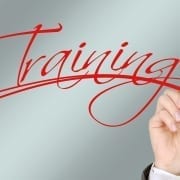The Right Way To Disrupt Markets (Hint: You Might Be Doing it Wrong)

Market disruption has become something of a buzzword over the last decade or so. It’s the ultimate goal of most entrepreneurs: find a new, better way of doing things that will become the new normal. Because there’s a rush to find the unique, disruptive, unheard of technology before somebody else does, some innovators dive headfirst into an idea, planning to take on the large corporations in their marketplace without a clear path to success. The right way to disrupt the market is a more calculated, step-by-step planning process.
It goes something like this:
- Know the market, inside and out. Before launching our own brand, my business partner and I worked for years inside the industry. We understood the nuances of profit margins, process, and market saturation. We also knew from this experience that there was room for something more. We saw too many smaller brands shut out of a process that could have been much more accessible, and we knew there was an opportunity to change the marketplace.
- Secure financing. You simply can’t launch a large-scale, market disrupting company without some capital. If you are independently wealthy, great – but odds are you’ll need to go looking for investors. Investors want to know exactly how you’re different from anyone who has come before you, and they want to see that you have a thought-through plan to get there. Most of all, they want to see your passion for your disruptive business and a dedication to making it happen. Be ready with your insider knowledge and a solid plan, and you’ll get there.
- Have a laser focus on your customer. One of the reasons market disruption becomes possible, even in well-established industries such as manufacturing, is because huge corporations lose focus on who made them successful in the first place: their customers. Constantly put yourself in the shoes of the type of person or company you are hoping will come to you. Revaluate their needs on an ongoing basis. For example, our company not only fulfills an initial manufacturing need – we help on the back end with marketing and brand development. If your customer is successful, they’ll have the means to invest. If you’re the reason they’re successful, they’ll have the incentive to invest in your brand. In short, when your customers succeed, so do you.
- Always be ready for the future. As your brand truly is able to disrupt your marketplace, you’ll grow with your customer base. But always remember: there are other disruptors right behind you. Always be planning for the next big thing for your consumers. We are continuously looking for ways to bring prices down, so we can reach an even wider base of clients looking for a small-scale manufacturing solution. We always follow market trends, so we know that our facility has to keep up with the demand for cleaner, sustainable formulas for our products. Our commitment to progress and to find innovative solutions will never rest.
Market disruption comes down to the right idea, with the right team, at the right time. Make sure you’ve put in the preparation – and then you’ll be ready to take advantage of your moment.
About the Author













Leave a Reply
Want to join the discussion?Feel free to contribute!